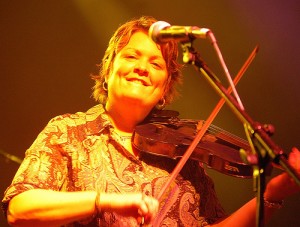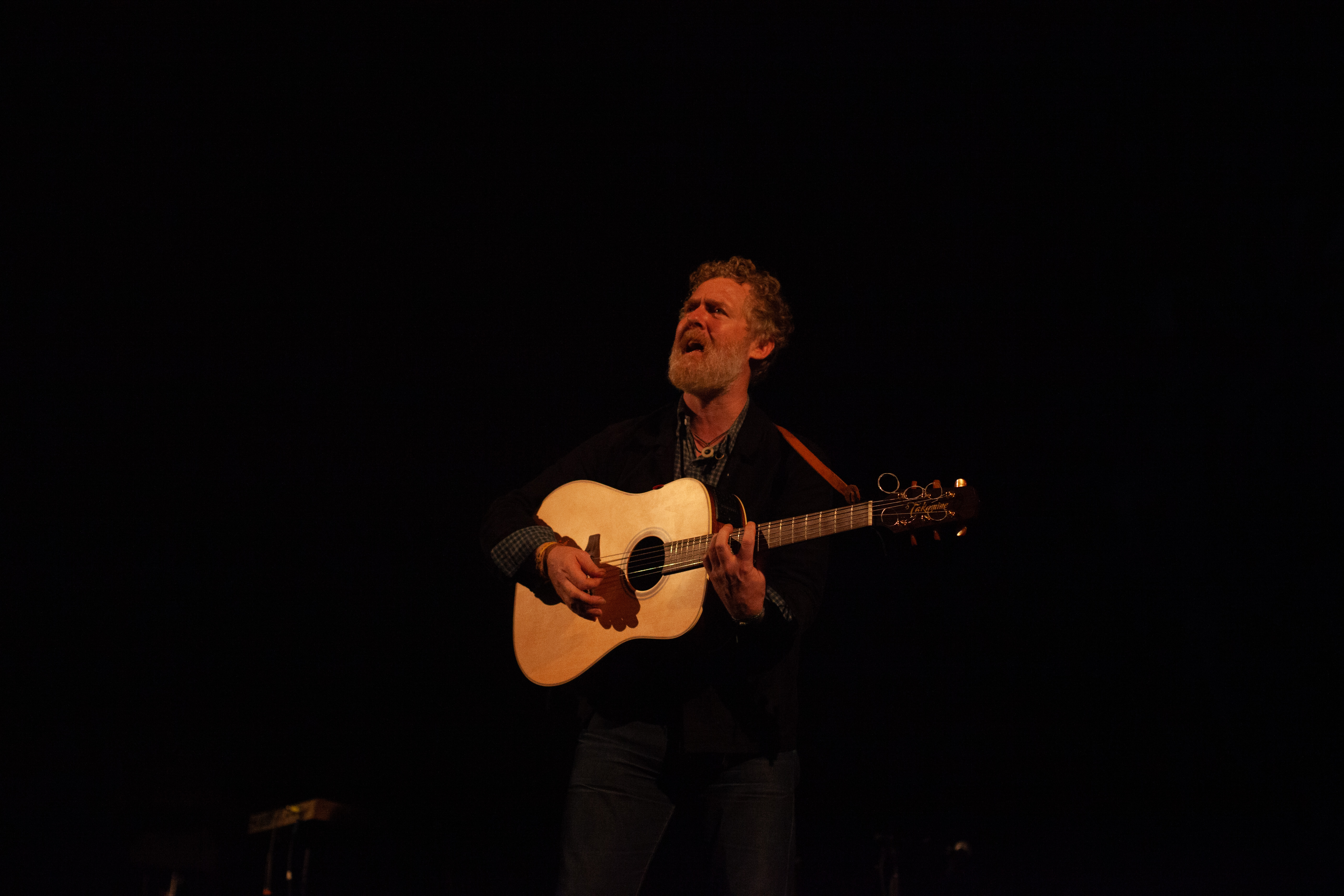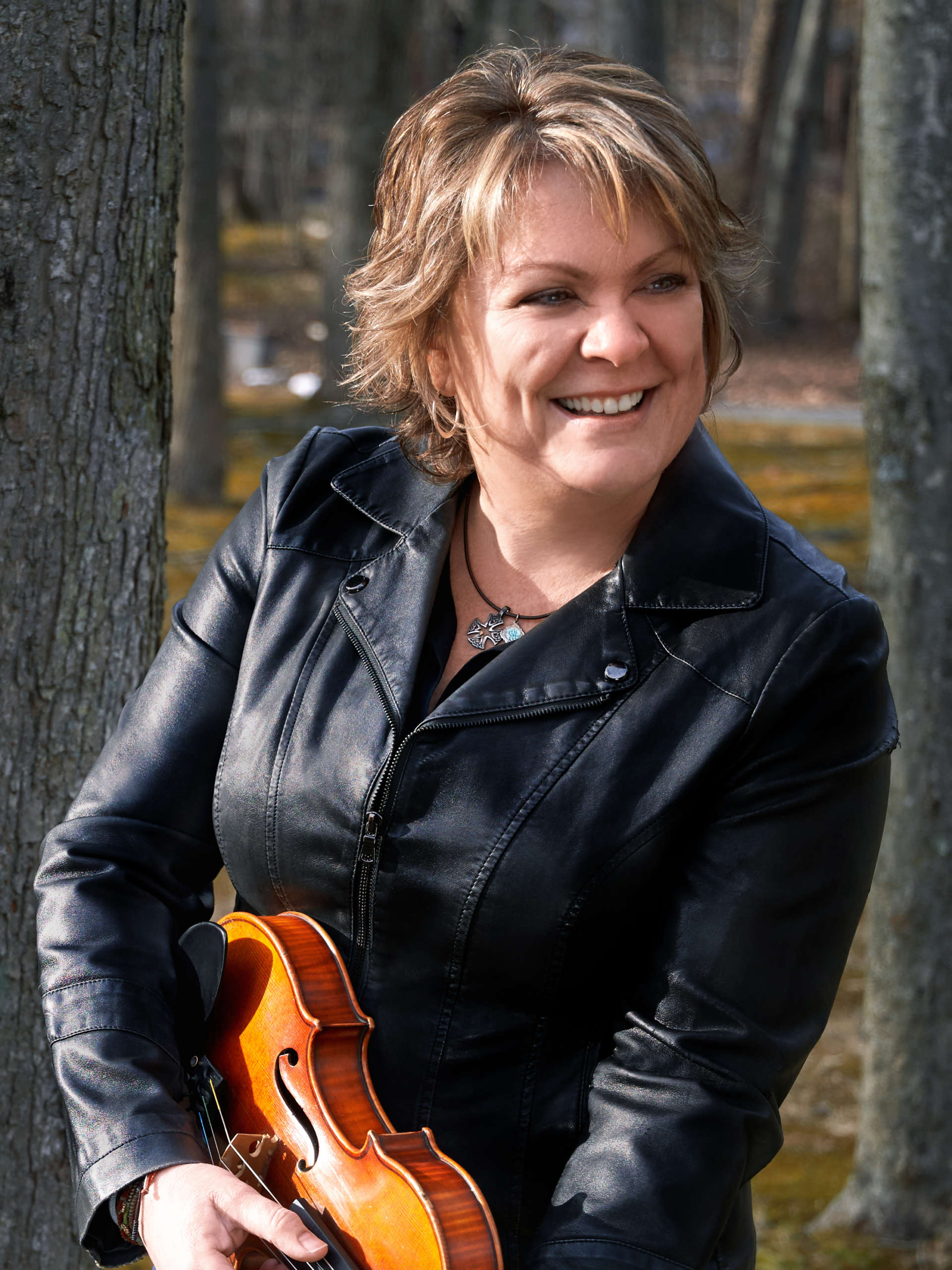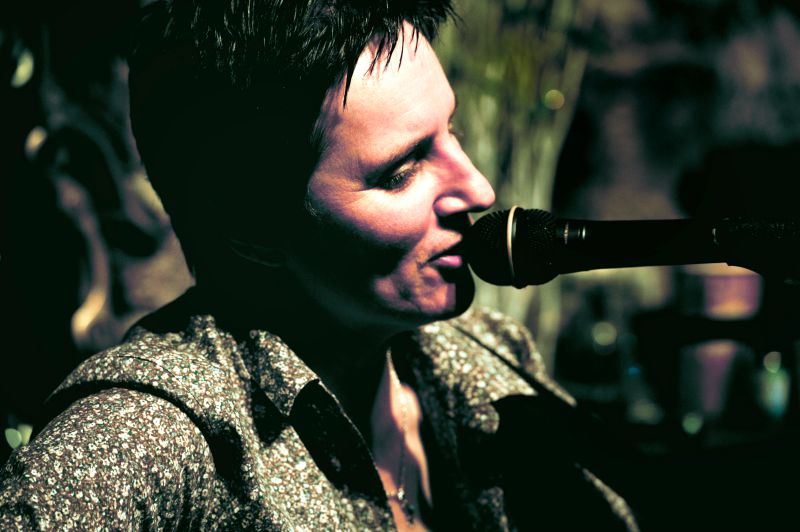Back when she was about 3 years old, Eileen Ivers recalls, she ran around her house in the Bronx with a blue plastic guitar and a wooden spoon—her first fiddle and bow. Her Irish parents loved music and the community in which she lived nurtured musical talent, so there was probably no chance this precocious sprite would not grow up to become an Irish musician.
That’s just what Ivers became—but, of course, that is a gross understatement. Ivers, a veteran of Cherish the Ladies and the Riverdance band, is recognized as one of the most gifted and creative practitioners of the art. Starting when she was still very small, Ivers started competing. By the time the competing stage of her life was over, she had collected nine all-Ireland crowns.
She continues to tour the world, dazzling audiences with her virtuosity and her unbounded energy. Catch one of her concerts, and you’ll leave exhilarated … and exhausted.
Local music fans will have a chance to see and hear Ivers and her eclectic band Immigrant Soul on Saturday, June 6, at Longwood Gardens. The concert starts at 7:30 p.m.
We caught up with Ivers recently and posed a few questions. Here’s what she had to say.
Q. How old were you when you first took up the fiddle? Why did it appeal to you? Were you always good at it?
A. I was about 8 years old. Both my parents are from Ireland; they would always play the music in the house. I always loved the sound of it and the emotion of it. It was just something I really gravitated to because it can make people happy and emotional at the same time.
Was I always good at it? Not initially, that’s for sure. We lived in an apartment building and the neighbors weren’t too kind about my practice ritual. But the more you practice the more you start to see improvement … and I’m not driving people as crazy as I once did.
The violin being such an emotive instrument, it really is a wonderful mirror. Your emotions come through. It really has such a dynamic emotional and rhythmic range. It’s an extension of one’s personality.
Q. You grew up in the Bronx. Seems like so many great American Irish musicians come from your neck of the woods. Back when you were playing and competing in festivals, was there the opportunity to rub shoulders and play with some of the other folks we’ve come to know?
A. The community in the Bronx and the Tri-State area was always so supportive of the musicians. I have wonderful memories of playing with my teacher Martin Mulvihill, and with Mike Rafferty and Joe Madden—all wonderful mentors. They also showed you the fun of the music.
Q. You competed in the All-Irelands many times. Was competing fun for you?
A. For an Irish-American kid, competing in the All-Irelands is a great legitimizer. You can hear and play the tunes as an Irish-born musician would. [But] I don’t think I enjoyed it. It was just a part of learning and probably a good impetus to keep the standard of playing up, a way to just get better and to be part of the community. The last time I won I was 18. There was never a reason to go back.
Q. How did you develop your style? And do you gravitate to a particular style of Irish fiddling?
A. I loved Martin’s playing so much, so my early style mirrored Martin’s quite a lot. It probably would have been been his styles, from the Limerick Kerry border.
[But] eventually you just develop your own style. It’s a very natural progression. I remember looking at it as a pure player, hearing everything from Stefan Grappelli to classical violinists. There’s so much technique that goes beyond Irish technique. You constantly learn.
Q. You now play a wide variety of styles, from jazz to African and Latin influences. How did this come about?
A. What should one do? Should one play what Michael Coleman played in the 1920s? You have to have respect for where it [the music] came from. But my other collaborations just started because of a musical curiosity—because an African drum player plays rhythms similar to what a bodhran player plays.




